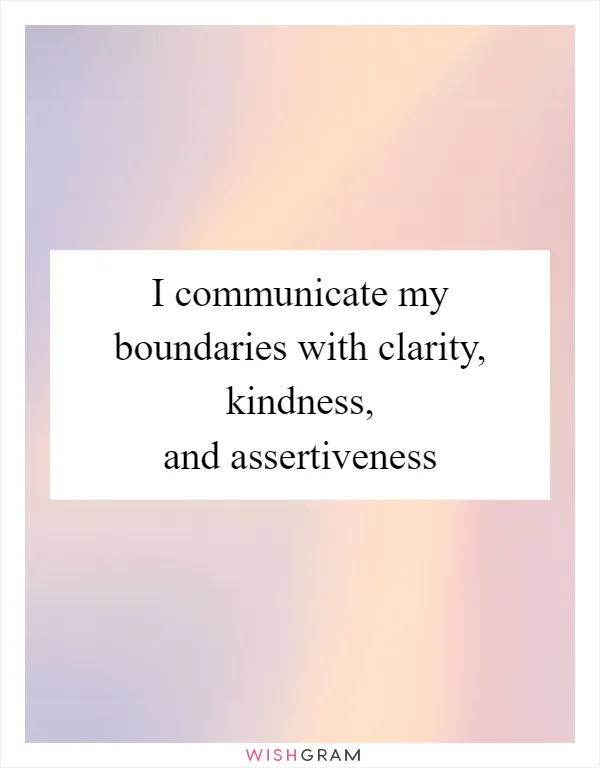I communicate my boundaries with clarity, kindness, and assertiveness
The affirmation "I communicate my boundaries with clarity, kindness, and assertiveness" can help you establish healthy relationships with others. When you communicate your boundaries effectively, you can avoid misunderstandings, conflicts, and resentment.
Clarity is essential when it comes to setting boundaries. You need to be clear about what you want and what you don't want. If you're not clear, others may not understand your needs and may unintentionally cross your boundaries. Therefore, it's important to be specific and direct when communicating your boundaries. For example, instead of saying "I don't like it when you interrupt me" you could say "I need you to let me finish speaking before you respond".
Kindness is also important when communicating your boundaries. You don't want to come across as aggressive or confrontational. Instead, you want to show that you respect the other person's feelings and needs. You can do this by using "I" statements instead of "you" statements. For example, instead of saying "You always make me feel uncomfortable" you could say "I feel uncomfortable when you do that".
Assertiveness is the third component of effective boundary communication. Assertiveness means standing up for yourself and expressing your needs and wants in a confident and respectful manner. It's important to be assertive without being aggressive. You want to be firm but not hostile. For example, instead of saying "I guess it's okay if you do that" you could say "I'm not comfortable with that, so I need you to stop".
When you communicate your boundaries with clarity, kindness, and assertiveness, you can create healthier relationships with others. You can avoid misunderstandings, conflicts, and resentment. You can also build trust and respect with others. When you communicate your boundaries effectively, you show that you value yourself and your needs, and you also show that you respect others and their needs.
